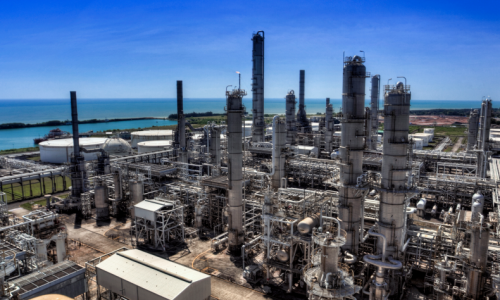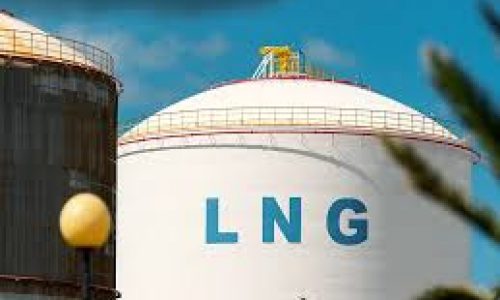Refined petroleum trading company PT AKR Corporindo Tbk (AKRA) has allocated IDR 250 billion in Capital expenditure (Capex) for 2023 to increase the company’s profit growth.
Established in 1978, AKRA is a company focusing on the distribution of refined petroleum and the distribution of chemical products (such as sodium hydroxide, sodium sulfate, PVC resin, and soda ash), warehouse lease, transportation, tank and other logistics.
Currently, the company has subsidiaries such as:
- PT. AKR Niaga Indonesia 99.99%;
- PT. AKR Sea Transport 99.99%;
- PT. AKR Transportasi Indonesia 99.99%;
- PT. Andahanesa Abadi and subsidiary 99.99%;
- PT. Anugerah Krida Retailindo 99.99%;
- PT. Anugrah Karya Raya and subsidiary 96.75%;
- PT. Arjuna Utama Kimia 99.96%;
- PT. Jakarta Tank Terminal 51%;
- PT. Usaha Era Pratama Nusantara and subsidiary 99.99%.
AKR targets profit growth
Apart from allocating the IDR 250 billion Capex, the company is targeting a 15% increase of net profit in 2023. The growth target will be facilitated by all business segments of the company.
Director and Corporate Secretary AKR Corporindo Suresh Vembu said on January 4, 2023, that the company was optimistic for this year. He said AKR was projecting an increase of Indonesian gross domestic product (GDP) and commodity demand in the country.
“The growth is also supported by expectations of an increase in the area of industrial land sold at the JIIPE [Java Integrated Industrial and Port Estate] in 2023. These things strengthen the company’s optimism to achieve the net profit growth target of around 15%,” Vembu said as quoted by investor.id.
The net profit growth is also supported by positive expectations for macroeconomic growth in Indonesia, which is still solid despite pressure from global fluctuations. Domestically, the Indonesian economy is supported by high demand and commodity exports as well as sustainable support by the government.
“This puts AKR on fertile ground with lots of business opportunities to uncover. With a strong infrastructure and longstanding experience across Indonesia, AKR is helping all industries to unravel energy logistics disruptions in Indonesia’s growing period,” Vembu added.
Risk in chemical industry
Various problems in chemical industry have hindered the performance of the industrial sector, such as extreme weather conditions and the COVID-19 pandemic. During the pandemic, the warehousing and loading and unloading of raw materials became significant vulnerabilities and obstacles.
Such reactive chemical products should not be stored carelessly and have their own regulations. A reactive chemical is a material that can react on its own or polymerize which can produce a fire or toxic gas when a change in temperature, friction, or moisture contact occurs.
In Indonesia, the special warehousing sector for reactive chemicals is still pricy and has expiration dates and damage to the packaging. All of which caused huge losses to the company.
Meanwhile, the technology and the standard operating procedure (SOP) are still expensive and a big challenge, because they must have strict standards and procedures.
In addition, the warehouse is one that is important to note and determine the performance of a company. Warehouse management needs to be considered and managed properly as there are also material layout management factors that are less than optimal and lack of attention is also a problem.









